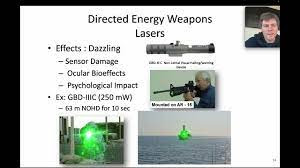Patent No. 6961953 System and method for broadcasting advertisements
Patent No. 6961953
System and method for broadcasting advertisements (Nieminen, Nov 1, 2005)
Abstract
A broadcast system provides consumers with inducement to consume portions in which they may not have an active interest, such as commercials. To dissuade consumers from leaving the vicinity of the broadcast receiver or from switching to other broadcasts while a first broadcast airs such a portion, the first broadcast is augmented by a second content entity calculated to be of interest to the consumer. Interaction is required of the consumer in order for him to receive the second content entity, which necessitates his presence and attention.
Notes:
BACKGROUND
OF THE INVENTION
1. Field of the Invention
The present invention relates to program transmission, and particularly to inducing
a consumer of program transmission to continue to receive and consume program
transmission during portions thereof in which he is not actively interested
and which he is inclined to ignore.
2. Description of the Related Art
Broadcast industries, such as radio broadcasting and television broadcasting,
derive a substantial portion of their income from charging advertisers for interspersing
commercial messages ("commercials"), also known as advertisements ("ads"), into
the substantive content of the broadcasts. Such advertising revenue not only
provides profit for the broadcasters, but typically provides funds for operating
expenses. Much broadcasting would have to be discontinued without advertising
revenue.
The viewer of a television program or the listener to a radio program (hereinafter
referred to as the user or consumer of programming) typically is not actively
interested in the commercial, and may even perceive the commercial as an intrusion
or annoyance. The user may leave the room, in which case he is still receiving,
but is no longer consuming, the program. Or the user may switch to another program
while the commercial is being broadcast. Modern consumer electronics devices
are typically equipped with remote controls which make it a simple matter to
switch to another program or "channel surf" through a plurality of other programs,
and to switch back to the original program when it is adjudged that the commercials
should be over. Some consumer electronics devices facilitate recording a program
for delayed playback, often with the commercials "cut". Even if the commercials
are not cut, the consumer may be inclined to "fast forward" over them. Such
behavior reduces the size of the audience for commercials, which in turn eventually
lowers the amount that the advertisers are willing to pay the broadcasters for
airing them. In effect, such behavior threatens the economic basis of commercial
broadcasting.
There is thus a need to provide an incentive or inducement to the consumer to
continue to consume the programming even when the substantive content is interrupted
for the presentation of commercial messages.
SUMMARY OF THE INVENTION
To overcome limitations in the prior art described above, and to overcome other
limitations that will be apparent upon reading and understanding the present
specification, the present invention provides program material that contains
along with the signal conveying the commercial message another signal conveying
something of interest or immediate benefit to the user, thus inducing the user
to continue receiving and consuming the program material including the commercial
message. The user is required to provide an interactive response in order to
receive the additional signal. He is thus induced to continue to consume the
programming, including the commercial message. In an aspect of the invention,
the two signals are transmitted via two different transmission media. In another
aspect of the invention, the additional signal is sent in advance of the commercial
message and is stored in the receiving equipment until the commercial is broadcast.
Other objects and features of the present invention will become apparent from
the following detailed description considered in conjunction with the accompanying
drawings. It is to be understood, however, that the drawings are designed solely
for purposes of illustration and not as a definition of the limits of the invention,
for which reference should be made to the appended claims. It should be further
understood that the drawings are not necessarily drawn to scale and that, unless
otherwise indicated, they are merely intended to conceptually illustrate the
structures and procedures described herein.





Comments